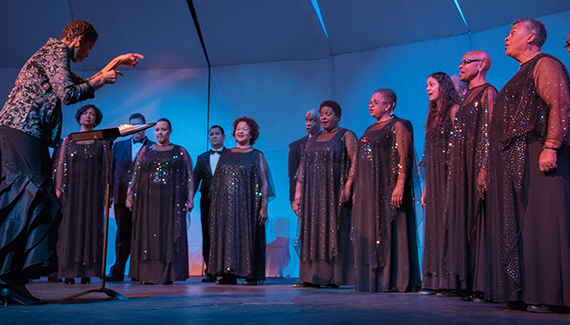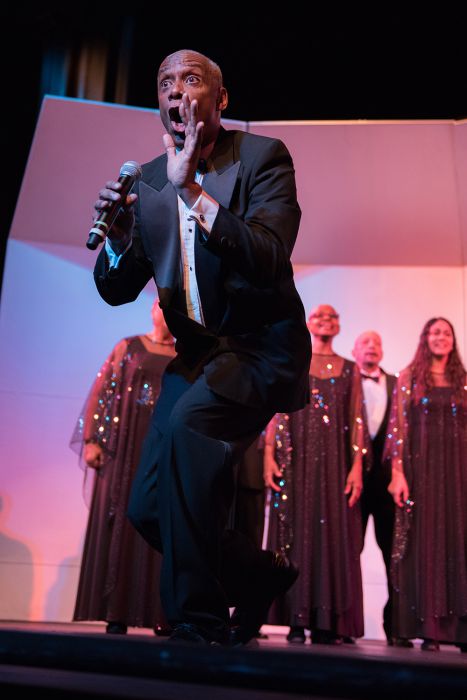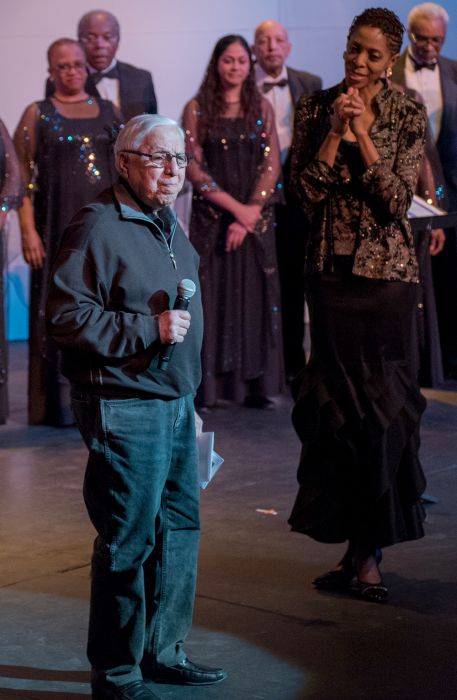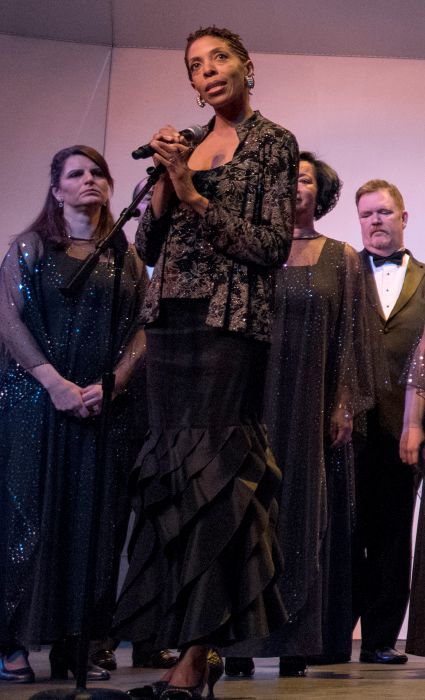
A nearly full University Theatre at California State University, Dominguez Hills (CSUDH) was captivated by rich harmonic tones of the Albert McNeil Jubilee Singers of Los Angeles on Feb. 4 as they performed a broad arrangement of melodies called “spirituals,” songs inspired by the hardships of African slaves.
 Founded in 1968, the acclaimed traveling company has helped engender international recognition of African American spirituals (also known as “Negro Spirituals”). Originally unaccompanied monophonic (unison) songs, spirituals are best known today in harmonized choral arrangements.
Founded in 1968, the acclaimed traveling company has helped engender international recognition of African American spirituals (also known as “Negro Spirituals”). Originally unaccompanied monophonic (unison) songs, spirituals are best known today in harmonized choral arrangements.
“In the beginning there was the work, and the work became the song. In between 1720 and 1865 [when slavery was abolished], the song became the spiritual; a body of more than 10,000 melodies created by Africans who were enslaved in the United States,” said Hansonia Caldwell, professor emeritus in the Music Department at CSUDH who introduced the company before the concert. “This enduring set of communal songs was created spontaneously, mostly using the vocabulary of Christianity. The words and melodies sustained the ancestors and helped them persevere in spite of suffering and loss.”
In the audience was Albert McNeil, founder and retired director of the jubilee singers, who is well-known in the national choral community. Among its many accolades, McNeil’s repertory has been honored with four “Command Performances” by the prominent American Choral Directors Association. In 1987, the company was invited to sing for Pope John Paul II during his visit to Los Angeles, and the group continues to perform internationally today.

“I was exposed to people like Hall Johnson and Jester Hairston. I saw how they did it, I listened to how they sounded. There is nothing greater than that.” said McNeil. “We had a reunion at St. Bernadette Catholic Church in the Baldwin Hills a couple years ago, and we had almost 200 people who had been members of the Albert McNeil Jubilee Singers at one time or another. This was great because you really have to believe in this music, otherwise it will die–it will die like any great art form if it is not cultivated and protected.”
For the concert, the jubilee singers selected a traditional and contemporary assortment of spirituals by by world-renowned African American composers, such as “Crossin’ Ovah” arranged by Richard Jackson and performed by Joel Israel Brown and Yolanda Mitchell-West; “Wade in the Water,” arranged by Jester Hairston; and “Whole World in His Hands,” sung by Brown and arranged by McNeil.
According to Diane White-Clayton, interim artistic director of the jubilee singers who conducted the company during the concert, spirituals were and remain “songs of faith, songs of praise, and songs of prayer.” They were also “functional songs” and often used for more than one purpose.

“Songs like ‘Wade in the Water’ would often be a song during baptism, but that song was also a warning. When a slave was going to run away, he or she was instructed [through the song] to go in the water to throw the dogs off the scent,” said White-Clayton. “When I hear the high parts of the soprano I have imagined what it would like to be a mother moaning, even hoping and praying that her daughter, child or husband would not be captured again.”
The songs the Albert McNeil Jubilee Singers perform go back generations, even centuries, which has enabled the current company and its predecessors “live the history” of American music, according to White-Clayton.
“When you think about music that is from the African American culture, you can really understand and analyze how it has permeated music all over the world. In fact, American popular music is what it is because of this music,” said White-Clayton. “When you think of rock ‘n roll, R&B, jazz, hip-hop, rap, country-western–all of the great styles that have come out of this nation–many of the elements you’ll find in this music are found or stemmed from spirituals. So we are very blessed to live in this nation.”